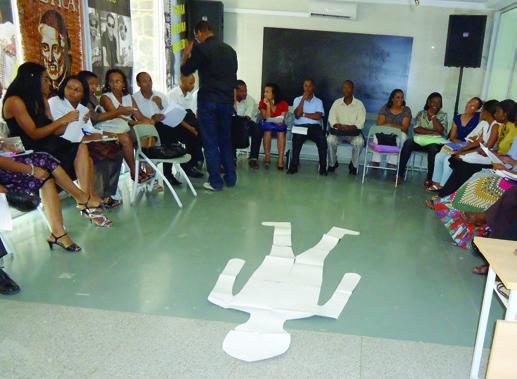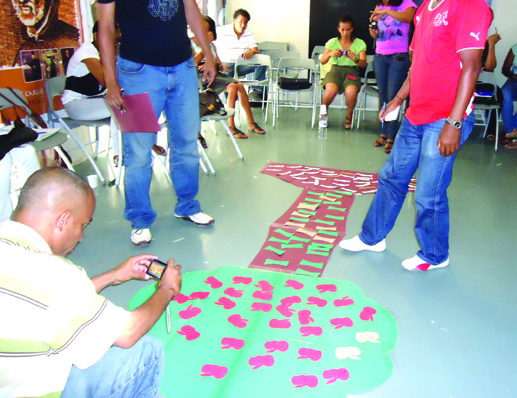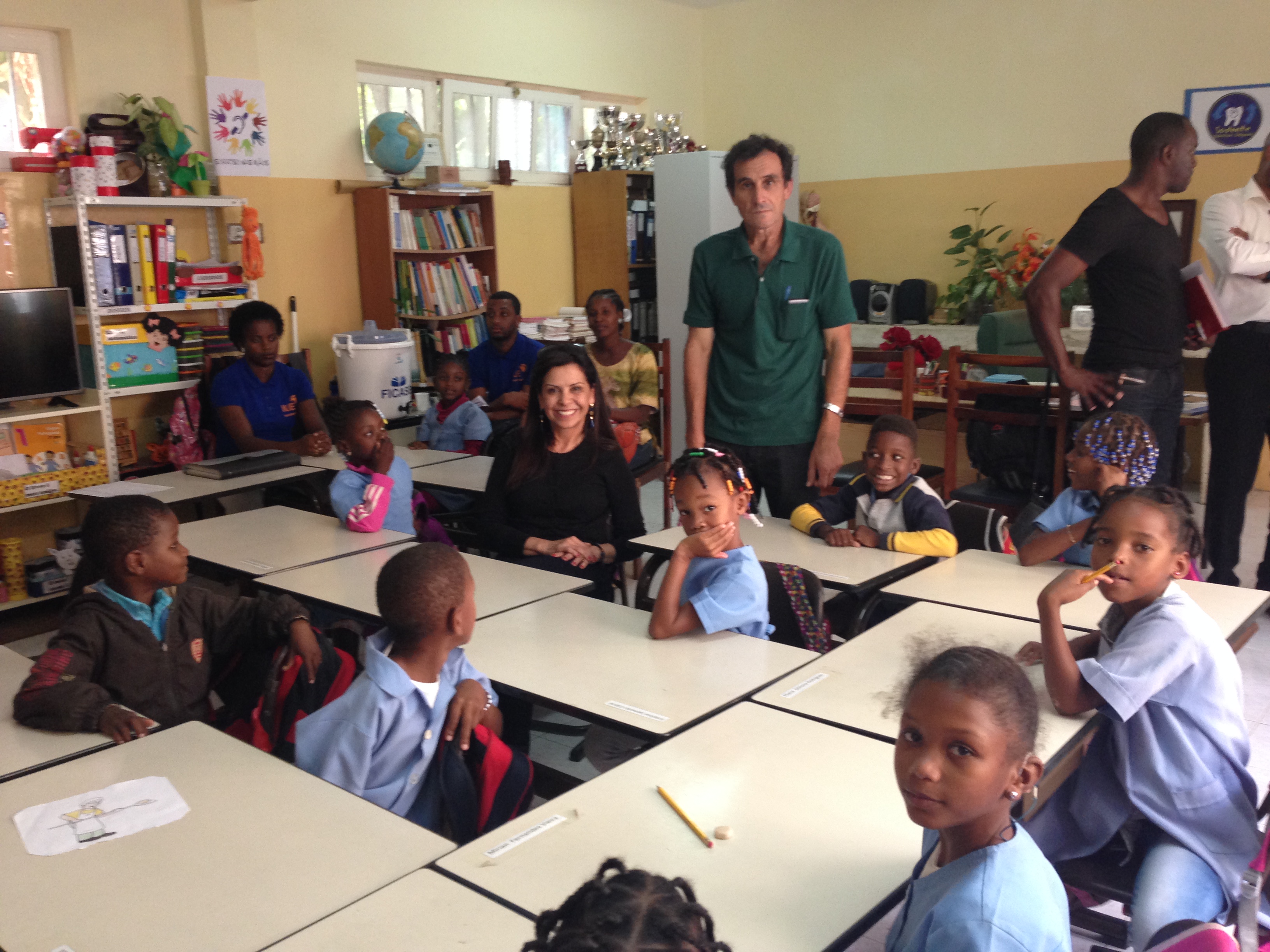 School for All (Escola de Todos)
Fostering a more inclusive education system in Cabo Verde by better attending to pupils with disabilities and special educational needs
School for All (Escola de Todos)
Fostering a more inclusive education system in Cabo Verde by better attending to pupils with disabilities and special educational needs

Challenges
The United Nations Educational, Scientific and Cultural Organization (UNESCO) has been promoting as an international goal the provision of access to quality education for all, regardless of factors such as gender, ethnicity and disability. About 15 percent of the world’s population has a disability and about 80 percent of those people reside in developing countries. An estimated 93 million children worldwide live with disabilities. Like all children, children with disabilities need quality education to develop their skills and realize their full potential. At the same time, children with special educational needs (SEN)–such as intellectual disability, visual impairment or deafness–are less likely to complete basic education. This has negative individual and collective repercussions, in particular social exclusion and the feeding of a vicious circle of poverty. Thus, there is a need for inclusive education that promotes greater autonomy for children with disabilities and integrates them into mainstream school systems. This orientation requires additional resources, in particular teachers and support staff with specialized training and access to adapted teaching materials. Cabo Verde has been developing initiatives in the field of inclusive special education, namely the elaboration of specific training plans for teachers. About 1,000 children with SEN are enrolled in the country’s schools.
Towards a Solution
- Implementation of a teacher training course (250 hours) for complementary specialized educational care, covering 11 modules (distance education, specialized educational care, assistive technology, physical disability, intellectual deficiency, visual impairment, deafness, autism, intellectual giftedness, pedagogical assessment of students with disabilities and curricular adaptation). Two thirds of the modules were conducted remotely (virtual learning environment) and the remainder through in-person classes (in both Cabo Verde and Brazil).
- Development of guidelines for public policies on inclusive education and assistive technology, with a view to strengthening the process of inclusion of students with SEN in mainstream schools. In this context, several studies were carried out in Cabo Verde that resulted in documents and activities to guide the development of a national policy on inclusive education. These activities were notably related to the Cabo Verdean sign language, with the registration of signs used by the hearing impaired in the different islands of the country, the preparation of a dictionary of signs in Creole (in printed and digital formats) and the provision of sign language courses and training of interpreters.
- Implementation of three multifunctional resource rooms to provide specialized educational services for students with SEN in three schools on the islands of Fogo, Santo Antão and Santiago (the three rooms have been serving as a reference in accessibility for students with disabilities). Teachers and students also received training in practical work in the multifunctional resource rooms, through an in-person course using the materials available in the rooms.
Contact Information
Countries involved
Supported by
Implementing Entities
Project Status
Project Period
Primary SDG
Secondary SDGs
Similar Solutions
| NAME OF SOLUTION | Countries | SDG | Project Status | |
|---|---|---|---|---|
A-Card Initiative |
Brazil, Cabo Verde | 10 - Reduced Inequalities | Completed | View Details |
Accelerating Digital Transformation in All Ministries in Bangladesh Promoting the rapid design and implementation of plans to digitize all ministries and subordinate government institutions in Bangladesh |
Brazil, Cabo Verde | 10 - Reduced Inequalities | Ongoing | View Details |
Accessible Digital Textbooks Promoting inclusive education through Accessible Digital Textbooks |
Brazil, Cabo Verde | 10 - Reduced Inequalities | Completed | View Details |
Addressing Racial and Ethnicity-based Discrimination and Strengthening the Protection of Rural Afro-descendants UNFPA supports data disaggregation as a tool to fight racism and ethnic discrimination |
Brazil, Cabo Verde | 01 - No Poverty 02 - Zero Hunger 03 - Good Health and Well-being 05 - Gender Equality 06 - Clean Water and Sanitation 11 - Sustainable Cities and Communities 16 - Peace and Justice Strong Institutions | Ongoing | View Details |
ADELANTE Triangular Cooperation European Union – Latin America and the Caribbean |
Brazil, Cabo Verde | 10 - Reduced Inequalities | Ongoing | View Details |


